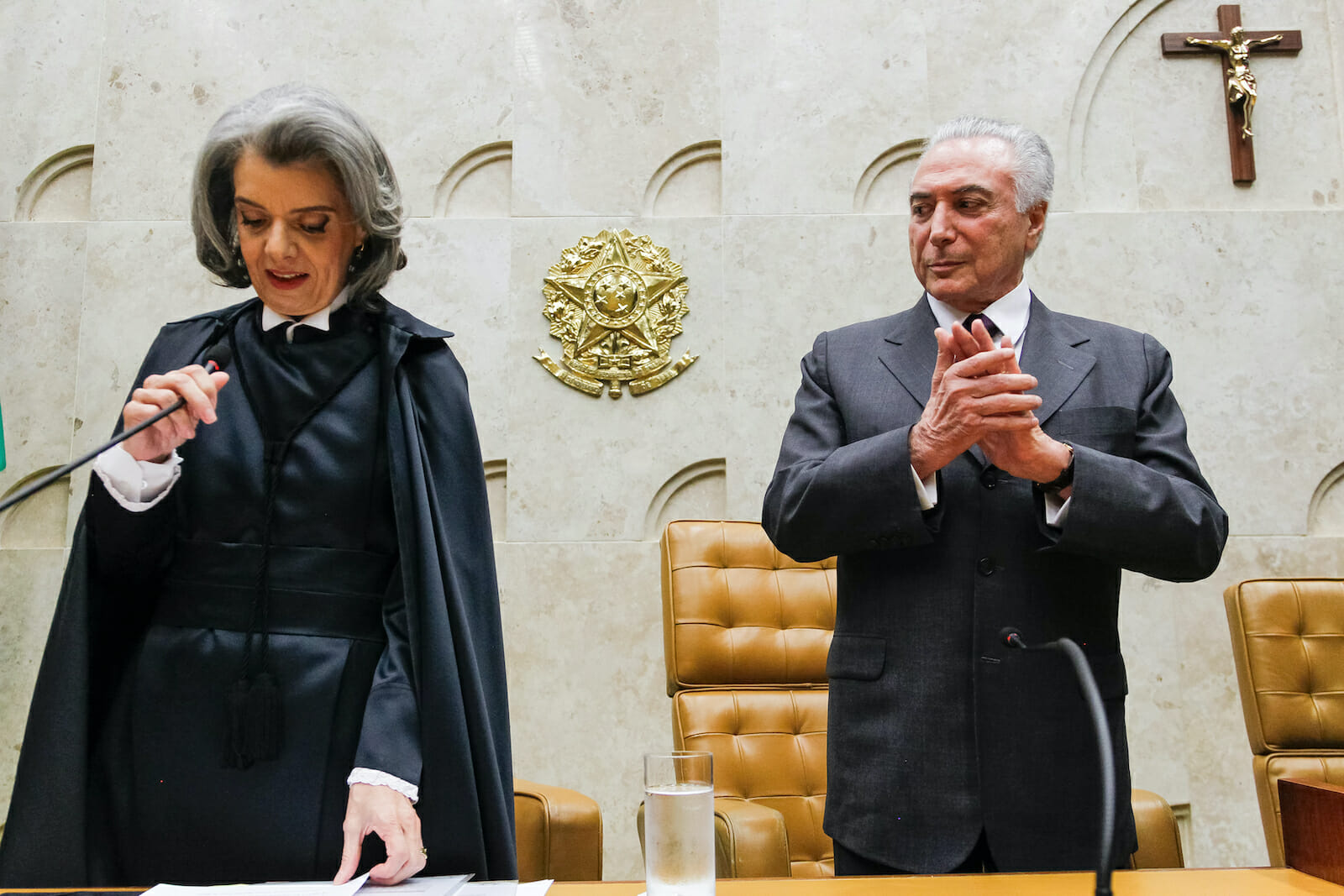
Forget Bolsonaro, Brazil’s Supreme Court Reigns Supreme
Brazil formally still has a president and a Congress. But in practical terms, the Supreme Court is by far the more important player in Brazilian politics since the start of the pandemic. The justices have the last word and a lot to say.
As of July 20, 2021, the Court has ruled on an impressive 11,586 cases on issues related to COVID-19. Considering only judicial review cases, in which the Court rendered an opinion on whether a law or an action of the Jair Bolsonaro government was (un)constitutional, the number of rulings exceeds 200. No constitutional court in the world comes close to the power that Brazil’s Supreme Court holds.
Some of these numbers may be explained by the federal government’s mismanagement. As the Bolsonaro government showed little to no power of coordination to lead the fight against the pandemic, the Supreme Court authorized states and municipalities to fend for themselves. For example, due to the slow response in rolling out vaccines, the Court entitled local governments to purchase vaccines directly from international suppliers. The Court also had to overturn questionable initiatives of the government, such as the intention to suspend the release of public information during the health crisis.
On the other hand, the fact that the Supreme Court became an active political player engenders self-perpetuating effects. As Frank Baumgartner writes in his book Agendas and Instability in American Politics, political players are always searching for more favorable policy venues — if the Supreme Court gets into politics, one should expect that politicians will embrace the possibility of judicial intervention whenever they lose a battle in Congress. And the justices have not been timid about ruling such cases.
Reviewing the national plan against the pandemic, they put their pen to work and expressed in detail how the government should organize supplies, what were the deadlines, who should get preference, and even what information should be displayed on the official website. Put differently, they said what, where, when, who…The Court also ordered the federal government to reverse the decision to withhold funds allocated to local governments even under the suspicion that some states had diverted funds away from patient care.
It came to the point where the Court was responsible for giving the thumbs-up for the Copa America soccer tournament to kick off in the past weeks. It is not an exaggeration to say that everything today in Brazil ends up in the hands of the eleven justices.
For many, “judicial activism” is warranted under the dysfunctionality of the Bolsonaro government and it is a blessing that the Supreme Court has stepped up to become the sword of justice. But there are reasons for criticism as well. The frequent judicial interference in political issues may be seen as undemocratic. Indeed, a broad interpretation of Brazil’s constitution, a text with more than 300 articles and 70,000 words, might grant the justices autocratic authority. In Montesquieu’s words, in what a situation must the poor subject be in those republics where the powers are united and the same body of magistrates are possessed of the whole power.
At the end of the day, this chaotic scenario, in which the separation of powers turns into allegory and the command over the political system shifts hands in surprising ways, vividly retracts the long-lasting instability of Brazil’s institutions. What is new is the judiciary assuming the role of the main political force of the Republic. How long will it last? Hard to say.
It has become clear that the more the Court engages in the world of politics the more it is treated as an ordinary political player. In the past, former President Lula da Silva accused the Court of cowardice. Jair Bolsonaro, the current president, has regularly criticized the Court. Lula and Bolsonaro are the main contenders for the 2022 election. Lula has recently walked free from prison, ironically by means of a polemic ruling by the Supreme Court. But he still has his issues with the justices who prevented him from running in 2018 and allowed him to be held in prison on corruption charges for almost two years.
Thus, it does not matter who wins, the next president will take office with an eye on the judiciary and might try a countermovement (constitutional reform, for instance) in order to regain some control. The Supreme Court, in its turn, shows no sign that it intends to easily surrender the prerogatives seized by means of its own interpretation of the constitution. An even deeper institutional battle may be on the horizon.
For now, in times of political turmoil, it is foreseeable that the Supreme Court will keep testing the elasticity of its powers, although it might be already stretching them too much. The future of the judiciary preeminence is uncertain — as Brazil’s future is.

